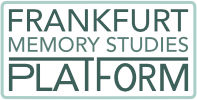Forensic Memory Cultures and a Literary Mode (Johanne Helbo Bøndergaard)
In the introduction to their book After Testimony (2012) Lothe, Suleiman and Phelan ask the question whether the disappearance of the last witness will affect the way the public discourse deals with the Holocaust. My research addresses that question as I consider a mode of writing in contemporary literature that might in fact come ‘after’ testimony. I attempt to describe a contemporary mode of writing which challenges testimony while bearing its strategies and strengths in mind. Just as the legal concept of testimony describes a particular mode of writing, the legal concept of forensics will serve to describe these works. I explore two main hypotheses: First, that a shift from testimony to forensics can be observed in culture in general, but also, and more specifically, in contemporary literature on memory and the past. And secondly that this ‘forensic’ literary mode through its particular use of evidence (testimony as well as other types of evidence) of past events provides a corrective to the assumption of the forensic sciences that the scientific analysis of objects and traces could and should leave behind the human subjectivity and bias (usually associated with testimony) when the past and its meanings are negotiated.


